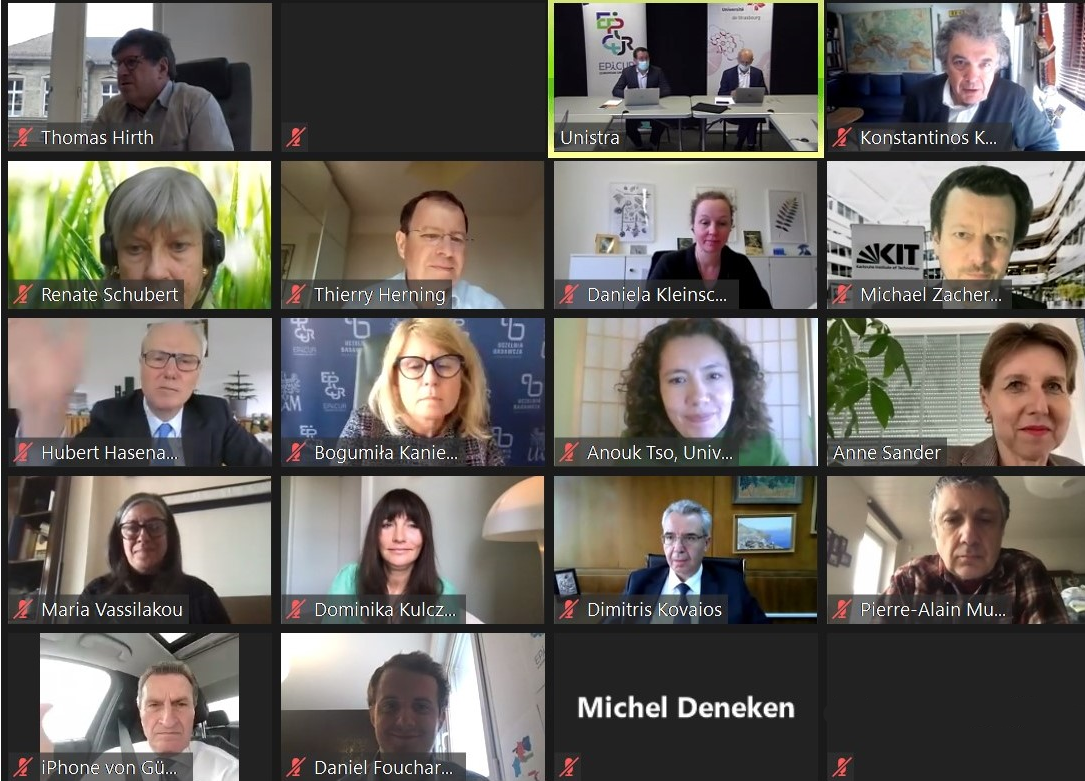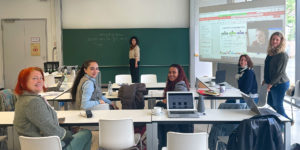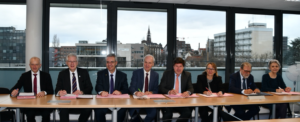On Monday 19 April, the first meeting of the Advisory Board of the EPICUR consortium, composed of 8 universities took place. The partners were represented by a strategic decision maker, Steering Committee members as well as the project & strategic coordinators of both EPICUR projects.
The strategic decision makers on the board are:
Anne Sander, Deputy of the European Parliament,
Thierry Herning, President of BASF France,
Maria Vassilakou, Member of Mission Board (Climate-neutral and smart cities) for Horizon Europe,
Dominika Kulczyk Polish Philanthropist,
Konstantinos Karantininis Professor at Swedish University of Agricultural Sciences,
Renate Schubert Chair of Economics ETH Zurich, Chair of the Supervisory Board of the KIT,
GüntherOettinger Former European Commissioner, Independent Councellor (as an observer).
At the end of the meeting, Mrs Dominika Kulczyk stressed “the importance of this kind of activity in the university environment and the need to reach different social groups from the university premises.”
At the first meeting of the Advisory Board, the projects EPICUR Education and EPICUR Research were discussed and a preliminary discussion took place on the activities of the EPICUR Alliance.
The board has an advisory role for EPICUR. Its mission is to provide constructive advice on the strategy of the consortium and to support it the creation of a long-term model. It is also a forum for the exchange of ideas between European experts. The activities of the Advisory Board aim to reinforce the European network of the EPICUR alliance.
At the end of the pilot phase of the European Universities project in 2022 and 2023 for EPICUR-Research, reports will be produced which will serve as a basis for the European Commission to prepare a detailed concept of the European Education Area and the European Research Area. These two legal acts will set the direction for the development and funding of science in the European Union after 2025.
European universities are supranational alliances of higher education institutions from across the EU that share a long-term strategy and promote European values and identity. The idea behind their creation is to significantly increase the mobility of students and staff and to support the quality, integration and competitiveness of European higher education.




